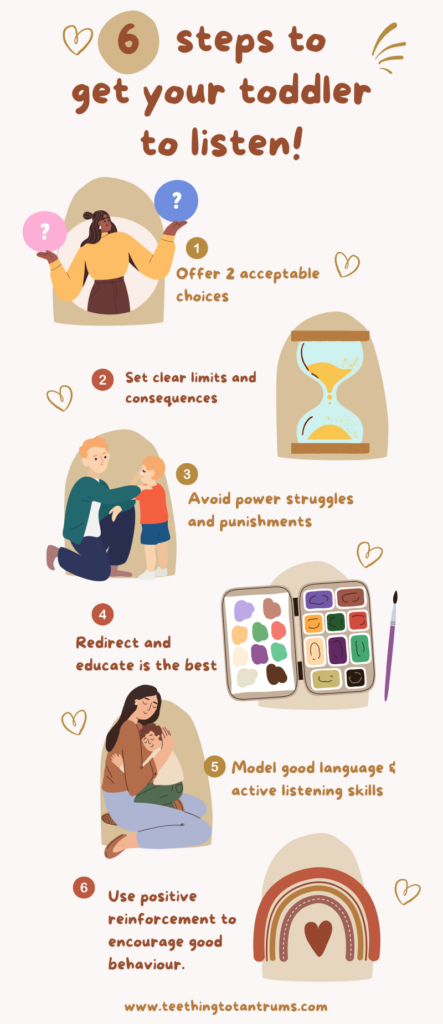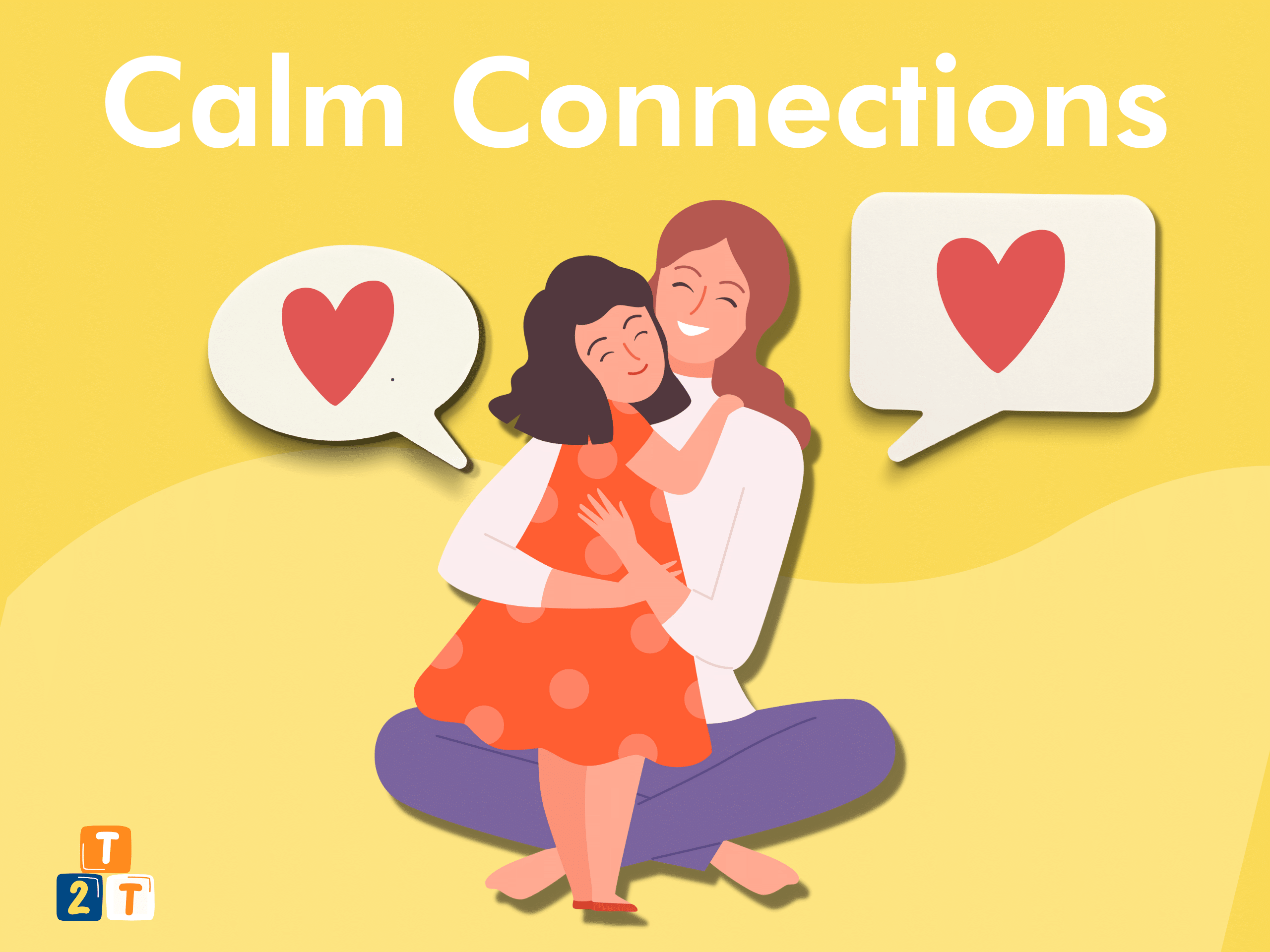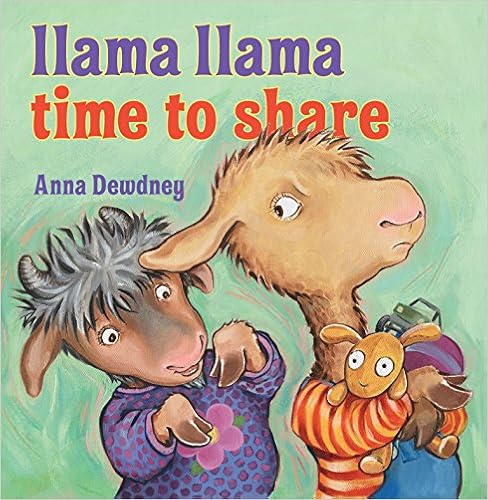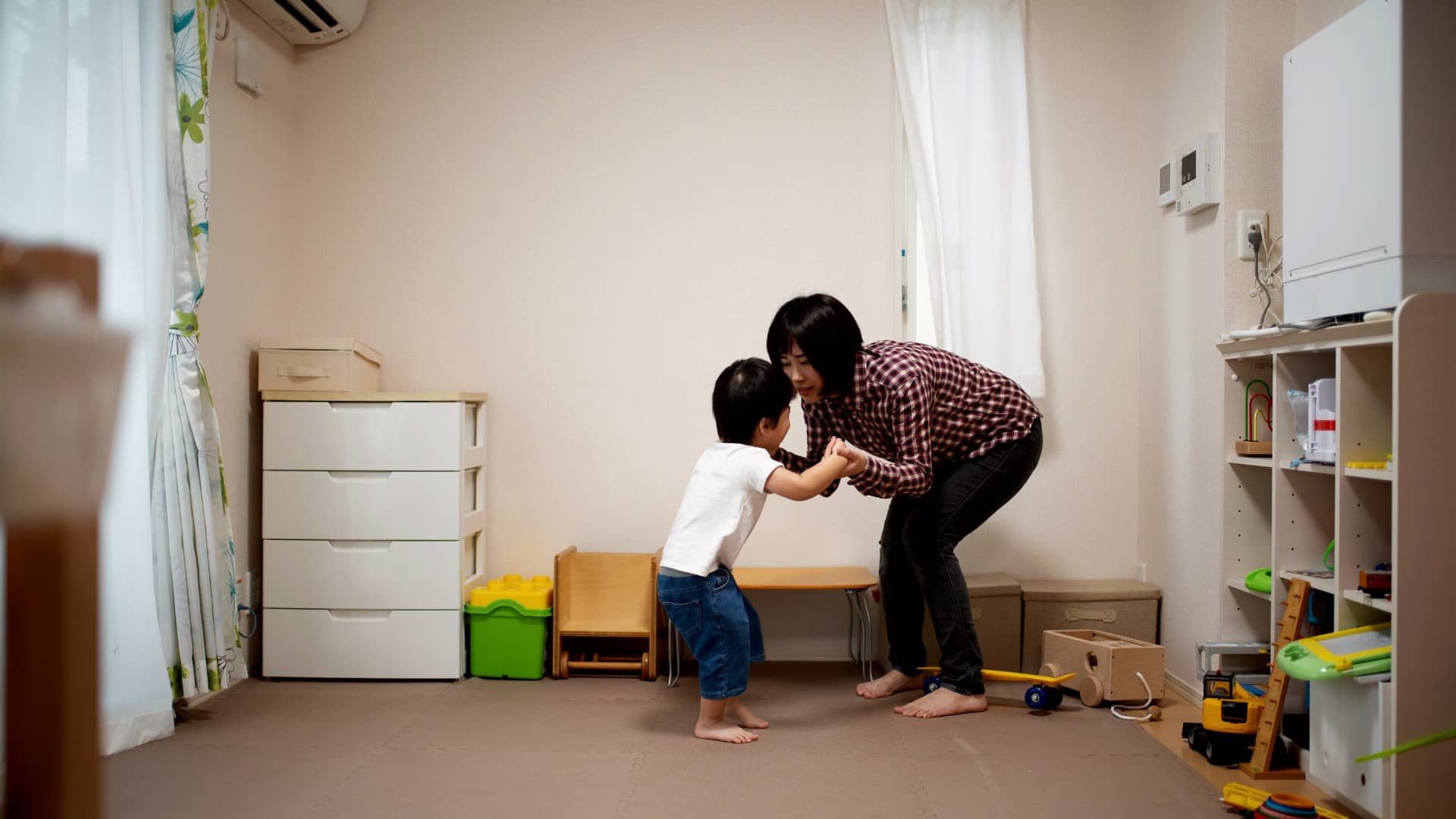Are you struggling with a toddler who doesn’t listen to you? I know how frustrating it can be when your little one ignores your instructions or seems to have selective hearing.
The good news is that you are not alone, and there are strategies you can try to improve communication and cooperation with your toddler.
Why Your Toddler Doesn’t Listen To You
Dealing with a toddler that just won’t listen can be very frustrating but it’s important to understand that this is a normal part of toddler behavior. Toddlers are still learning how to communicate and understand language, so it’s not uncommon for them to ignore or misunderstand what you’re saying.
Here are some reasons why your toddler might not be listening to you:
- Distractions: Toddlers have short attention spans and can easily get distracted by their surroundings. If your toddler is playing with toys, looking at a book or engrossed in an activity they just might simply not hear you when you’re talking to them.
- Power Struggles: As we know this is the age of independence when toddlers are naturally learning to assert their free will. Therefore, they may ignore you as a way of exerting their own control. This can lead to power struggles and emotional reactions between you and your toddler.
- Developmental Stages: Finally, it’s important to remember that toddlers go through different developmental stages that can affect their behavior. For example, during the “terrible twos,” toddlers may become more defiant and resistant to authority which can translate into deliberately not listening or throwing temper tantrums.
How To Deal With A Toddler That Doesn’t Listen
When dealing with a toddler that won’t listen it is important to remember that they’re not deliberately being naughty or defiant but that their listening skills still need to be refined, learned, and developed.
Here are some strategies that I have found can help encourage your toddler to listen and respond positively:

1. Offer Two Acceptable Choices
One of the most effective ways to encourage positive behavior is to offer two acceptable choices.
For example, instead of saying ‘Put on your shoes’ try saying ‘Would you like to put on your red shoes or your blue shoes?’
This gives your toddler a sense of control and helps them feel more invested in the task at hand. You may be surprised how quickly they start to listen if they feel they are involved in what is happening next.
2. Set Clear Limits And Follow Through With Consequences
It is very important to set clear limits and consequences for your toddler’s behavior.
Make sure that you speak clearly and that your toddler understands what is expected of them and what the consequences will be.
Use positive reinforcement when your toddler follows the rules, and follow through with age-appropriate consequences if they do not.
TOP TIP: Once you have set a boundary, do not change it. Once you have named a consequence, follow it through. If your child notices you waiver or give in, they will try and manipulate you again in the future to get what they want. Which is not a behaviour you want to encourage!
3. Avoid Power Struggles And Punishments
Avoid getting into power struggles with your toddler. Instead of yelling or punishing your child, try using positive phrases to communicate your expectations.
For example, instead of saying ‘stop doing that’, try saying ‘I need you to stop doing that, please.’
4. Redirect And Educate
I am a great believer in redirecting and educating. When our children don’t listen, we often ask them why or simply tell them off.
Redirecting and educating moves your child calmly away from what you don’t want them to do and guides them towards what to do instead in a teachable moment.
For example, if your little one is drawing on the wall say ‘Remember we don’t draw on the walls, let’s go and find some nice paper for you to draw on instead’.
By not challenging but giving your toddler and giving them a way out of the situation and educating them where it is suitable, you have encouraged them to listen to you in a positive way.
5. Model Good Listening
This is really important. There is no better way to teach your toddler to listen than to model good listening skills and engage in active listening.
When your child is speaking to you, give them your full attention and respond in a positive and respectful manner. This will help your toddler learn how to communicate effectively, develop their language skills and listen to others.
6. Use Positive Reinforcement
Use positive reinforcement to encourage good behavior.
When your toddler listens and follows the rules, praise them and offer rewards such as stickers or extra playtime. This will help your toddler feel motivated to continue listening and behaving appropriately without having to resort to toddler discipline.
Want to stop your children from yelling, shouting & throwing tantrums... Whilst helping them listen to you and building a healthy strong relationship? Look no further than Calm Connections and transform your family’s life for years to come.
- Understand the best way to communicate with your child in different situations, so you feel more confident, relaxed, and in control... even during the most challenging moments. 💖
- Learn how to set clear boundaries and engage your child's cooperation 🌟
- Break free from tantrum cycles and promote healthy alternatives (without using punishment) 🎉
- Learn my trade secrets (collected over 40+ years in the childcare industry) to get your child to listen to you without shouting 🙌
- Promote kindness and honesty to prioritize a respectful relationship with your child ❤️
How Can I Help My Toddler To Listen?
No matter how frustrating it is when your toddler doesn’t listen to you it is important to always remember that toddlers are still developing their language and communication skills.
So to help build up these skills and teach your child how to listen for years to come, do the following (in combination with the previous points).
Encourage Reading And Listening Skills
Reading to your toddler is a great way to help improve their listening skills. Choose books that are appropriate for their age and read in a clear and engaging tone.
Encourage your toddler to ask questions and participate in the story. This will help them develop their language skills and improve their attention span.
Loved by families all over the world, Llama's story about learning to share his toys with his neighbours is a brilliant way of opening the conversation about how and why sharing is important to your toddler!
Have Family Mealtimes
Mealtimes can also offer a great opportunity to teach your toddler to listen as you have a captive audience. They can also observe others talking and listening to each other over dinner too.
Use this valuable family time to encourage your toddler to listen to others and also ensure they are given time to speak and be listened to. Always remember to praise your toddler when they demonstrate good listening skills.
The Importance of Eye Contact
When you want your toddler to listen it is always important to use eye contact when speaking to them. Get down to their level and make sure they are paying attention before you ask them to do something. This will help them focus on what you are saying.
TOP TIP: Giving instructions to a toddler from another room or over their heads while they are otherwise engaged will not result in a positive outcome.
Don’t Ask… Tell
Always make your intention clear by telling your little one what is coming next. Don’t say ‘Shall we have a bath?’ or ‘Are you ready for tea?’ say ‘Let’s go take a bath’ or ‘Let’s tidy up, it’s time for tea’
Your toddler is more likely to listen if given a clear instruction and less likely to listen if offered an open-ended choice.
Explain The Reason
Toddlers like adults are more likely to listen and comply if they are given a good reason why. So instead of saying ‘Don’t jump on the bed’ say ‘Don’t jump on the bed, you might fall and hurt yourself’.
Correct Respectively
Always correct your toddler’s behavior in a respectful and positive way. For example, instead of saying ‘Don’t do that.’ say ‘Let’s try this instead.’
Or you can remind them that you don’t want them to do something by showing them the right way to do it. This way you are avoiding a showdown and guiding them towards a good outcome.
Give Positive Attention
Always respond positively when your toddler listens to you. Giving them positive attention when they listen successfully will definitely reinforce good behavior.
NOTE: The tone of voice you speak to your toddler in will have a huge impact on the response you get back. A negative tone will result in a negative outcome and a positive tone of voice will encourage and support your toddler to respond positively back.
Establish Routines
Establishing consistent routines and sticking to them will help your toddler understand what is expected of them and result in them succeeding in carrying out daily tasks.
Toddlers like to know what is coming up and you are more likely to have their cooperation if you have solid recognisable routines in place.
Use Fun Or Familiar Phrases
As with routines, familiar phrases can also help in keeping your toddler’s listening on track. Make listening fun by using the same words and phrases for times when you need your little one to get ready for what is coming next.
For example, make climbing the stairs for bathtime a mountain adventure, and make up fun rhymes that you use every time you get ready to leave the house or get dressed in the morning.
When you need to remind your toddler not to do something such as not jumping on the furniture use a repeatable reminder such as ‘floors are for feet, sofas are for bottoms’.
Your toddler is more likely to remember these fun rhymes than ‘Get off!’ or ‘Don’t do that!’
Stay Calm And Be Patient
Remember that your toddler is still developing their self-control and may have toddler tantrums.
Always stay calm and patient when dealing with your toddler not listening. If things escalate they are very likely to result in your little one having a meltdown and taking you down with them.
Try Singing
Singing your words can often succeed in making tasks more engaging and fun for your toddler.
You might feel a bit silly but by changing the tone of your voice you can often get your toddler’s attention more quickly and successfully.
Looking to get your little one to sleep quickly and effortlessly? Check out my Bedtime and Nap Cheat Sheet and master the art of making daytime naps and bedtimes as seamless as possible.
A bedtime & nap cheat sheet so good your little one will ask you to put them to bed...
Laura Williams "This is a life saver! I'm so glad I downloaded your bedtime & nap cheat sheet. My little one actually asked me to put him to bed last night! Unbelievable! Thank you so much!"
Click Here For The FREE Cheat Sheet
Frequently Asked Questions About Why My Toddler Doesn’t Listen
Looking for more information about why your toddler doesn’t listen to you? Here are the answers to the most common questions.
How Do You Discipline A Toddler Who Doesn’t Listen?
I am not a fan of disciplining a toddler who doesn’t listen. I prefer to use the word guidance.
It’s important to remember that guiding your toddler towards listening and the desired outcome should be age-appropriate and should never involve physical punishment.
Instead, try to redirect their behavior by setting clear boundaries and consequences.
For example, if your toddler hits or bites, calmly explain that it’s not acceptable behavior and provide a consequence such as a time-out in the quiet corner or loss of a privilege.
Consistency is key when it comes to discipline, so make sure to follow through with consequences every time.
Is It Normal For 3 Year Olds Not To Listen?
Yes, it’s normal for 3-year-olds to have difficulty listening at times. Toddlers are still learning how to communicate and understand their environment, and their attention spans are short.
It’s important to be patient and understanding while also setting clear boundaries and expectations for behavior.
REMEMBER: Positive parenting focuses on reducing negative behaviors through effective listening strategies and a communication style focused on positive language to support growth and understanding without punishment.
What Are Signs Of Behavioral Problems In Toddlers?
Signs of behavioral problems in toddlers can include aggression, defiance, frequent tantrums, and difficulty following rules or directions.
If you’re concerned about your toddler’s behavior, it’s important to talk to their pediatrician or a mental health professional for guidance.
What To Do When Your 2 Year Old Doesn’t Listen?
When your 2-year-old doesn’t listen, it’s important to keep your expectations age-appropriate.
Toddlers at this age are still learning how to communicate and understand their environment, so it’s important to be patient and use simple, clear language. Try to redirect their behavior by offering choices and positive reinforcement for good behavior.
My 3 Year Old Doesn’t Listen And Talks Back. What Can I Do?
If your 3-year-old doesn’t listen and talks back, it’s important to stay calm and model respectful communication. Don’t let the situation escalate and try and avoid shouting.
Try to understand the root of the behavior and address it with clear boundaries and consequences. Encourage positive behavior by offering praise and rewards for good listening and respectful communication.
Need More Parenting Help?
- Download our FREE Bedtime & Nap Sleep Cheat Sheet. It’s a free, easy-to-use and proven formula designed for parents of 0-5 year olds to master the art of consistently undisturbed and restful sleep without the yelling, nagging or exhausting long-winded evenings.
- Check out our Parenting Toolbox. You’ll get access to expertly-chosen products that you can guarantee are the best for your little one and your wallet.
- Are you looking for personalized guidance to navigate the challenges of parenting? I offer 1-on-1 consultations to bring you tailored strategies and actionable advice to help support your child's growth and well-being with confidence.

A bedtime & nap cheat sheet so good your little one will ask you to put them to bed...
Laura Williams "This is a life saver! I'm so glad I downloaded your bedtime & nap cheat sheet. My little one actually asked me to put him to bed last night! Unbelievable! Thank you so much!"
Click Here For The FREE Cheat Sheet




